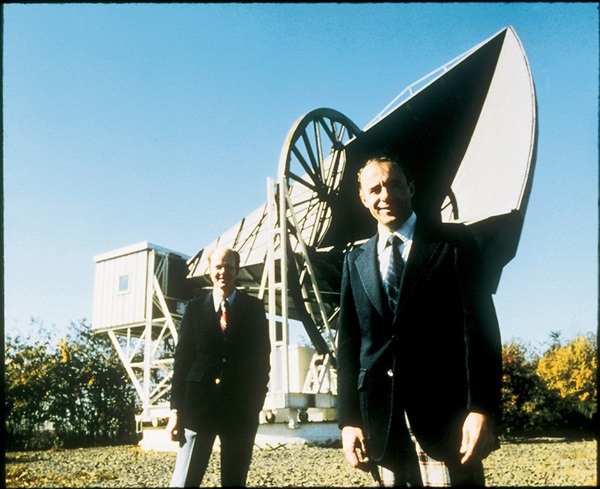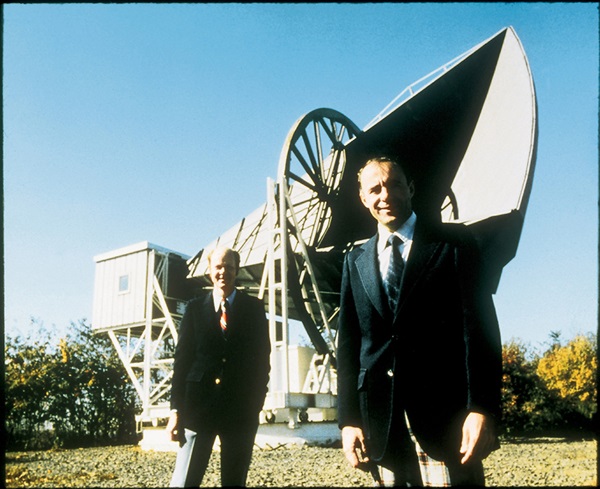Penzias, who died last week at age 90, co-discovered the cosmic microwave background radiation with Robert Wilson.

Robert Wilson (left) and Arno Penzias unexpectedly discovered the cosmic microwave background radiation with this horn-shaped antenna. Credit: Astronomical Society of the Pacific.
The world of astronomy lost a giant last Monday with the death of Arno Penzias, who helped the define the origin and evolution of the cosmos as we know it. As a radio astronomer working at Bell Labs in New Jersey in 1964, Penzias and his collaborator Robert Wilson detected a uniform radio “hum” over the entire sky. That turned out to be the echo of the Big Bang, and in 1978 the pair shared the Nobel Prize in Physics for their discovery, which confirmed the origin of the universe.
Penzias was born April 26, 1933, in Munich, the son of Jewish parents who had emigrated from Poland and ran a leather business. When Penzias was 6, he and his brother were transported out of Germany to England as part of the Kindertransport evacuation process, fleeing the Nazi regime. He subsequently attended Brooklyn Technical High School, studied chemistry at the City College of New York, served in the army as a radar officer, and commenced a research assistantship at Columbia University. He worked with the celebrated physicist Charles Townes, inventor of the maser, and by 1962 earned his PhD. in physics.
Penzias went to work at Bell Labs in Holmdel, New Jersey and just two years later made the breakthrough discovery, along with Wilson. (I have had the privilege of getting to know Bob Wilson, spending time with him at the Starmus Festival, and hearing about those days of discovery.)
For many years Penzias continued on with a successful and important career. But this breakthrough discovery would be the action that set our understanding of cosmology into hardening concrete. Penzias was the recipient of many awards beyond the Nobel, and he enjoyed a large and active family, following his marriage to Sherry Levit in 1996. He died in San Francisco, aged 90, on Jan. 22, 2024, and will be missed as one of the giants who helped us to understand the universe we belong to.
David J. Eicher is Editor of Astronomy, author of 26 books on science and history, and a board member of the Starmus Festival and of Lowell Observatory.

